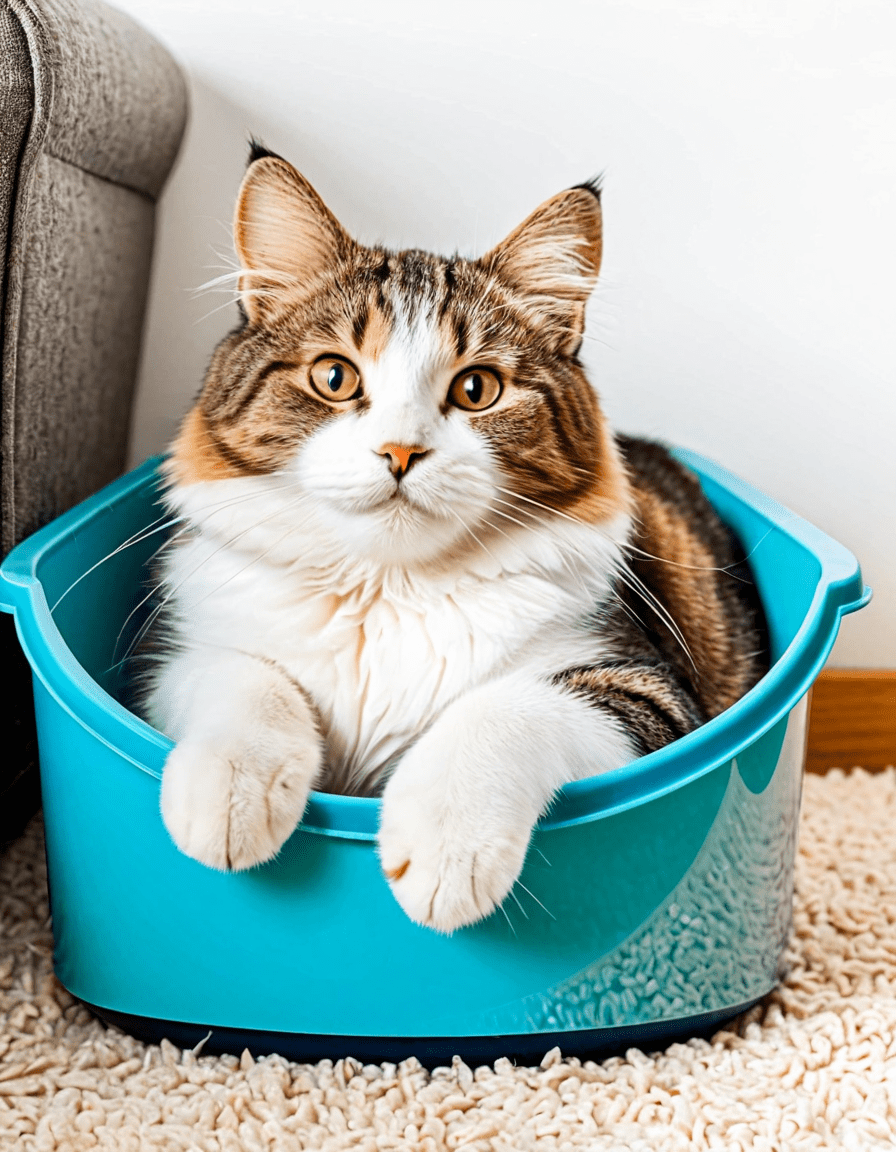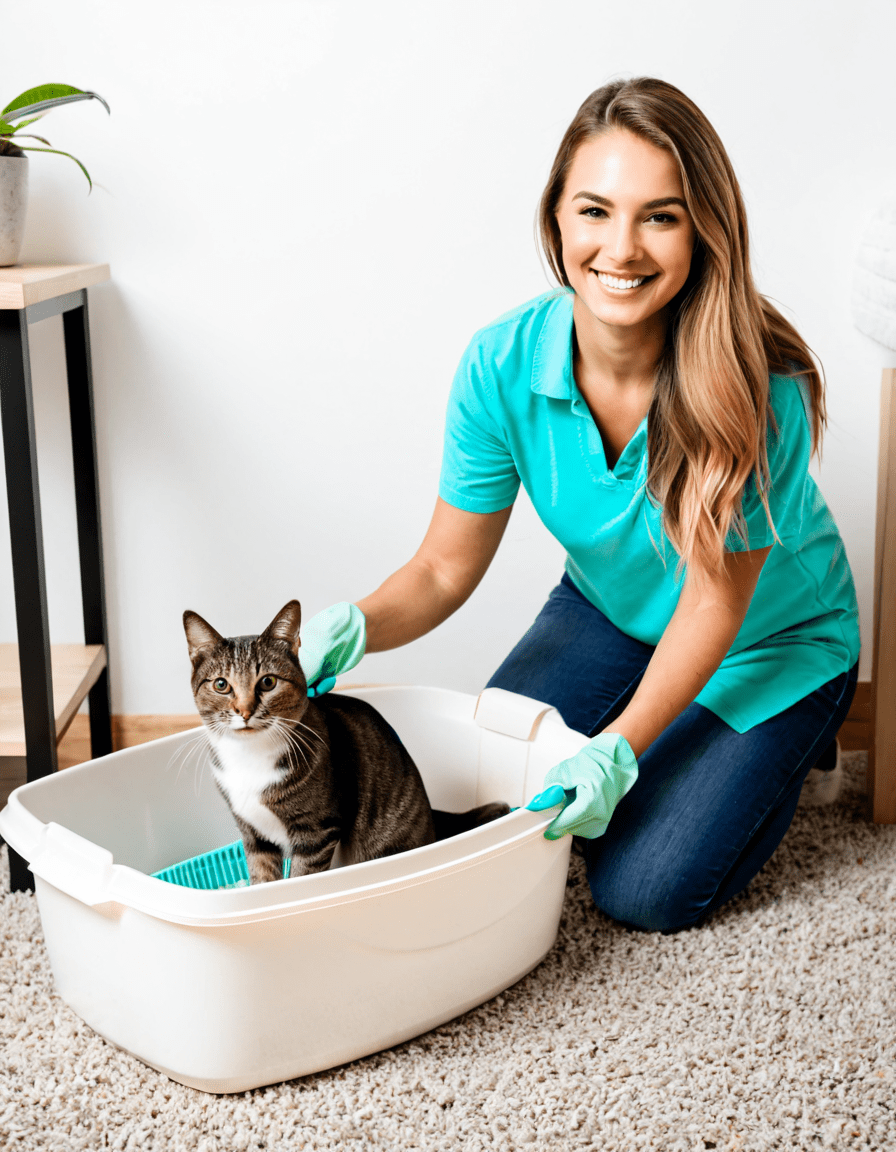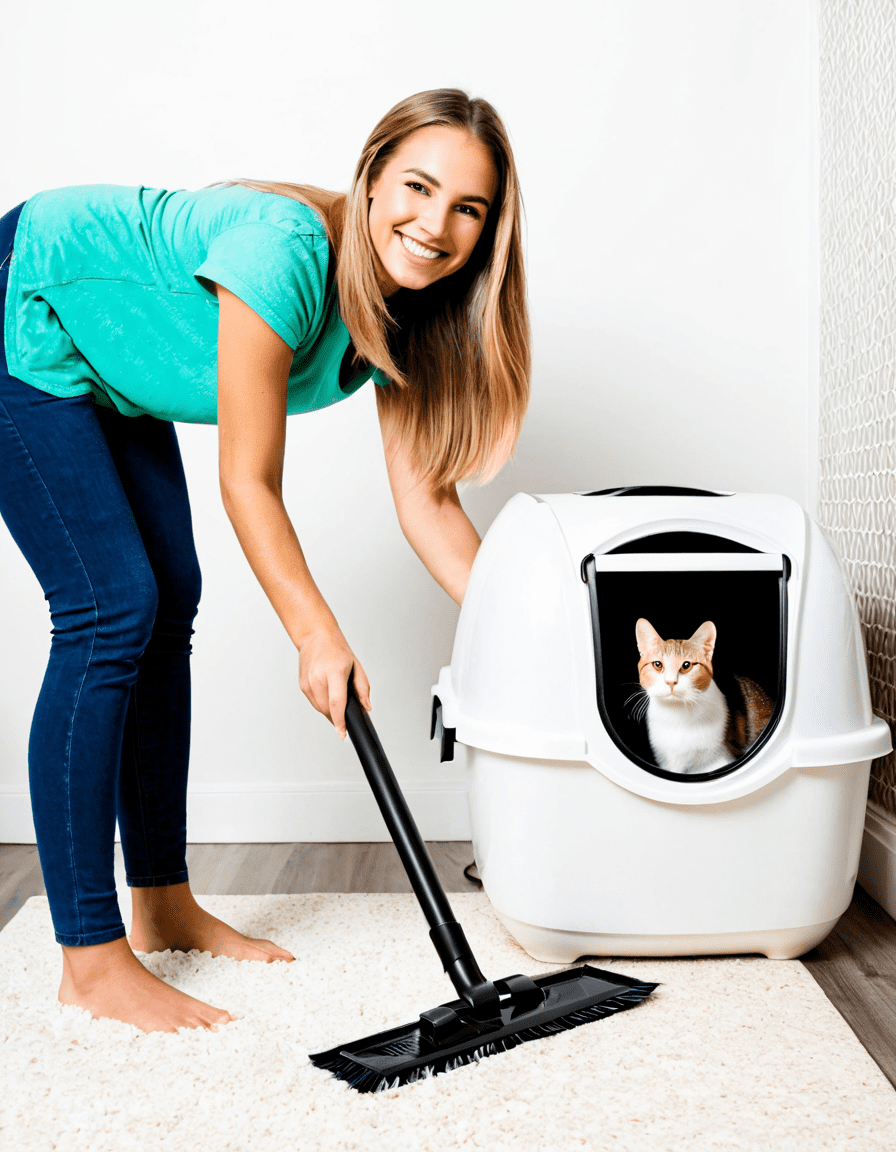Understanding how often you should clean a litter box is crucial for your cat’s happiness and well-being. Cats are known for their cleanliness, and a dirty litter box can lead to a range of behavioral issues that can stress both you and your feline friend. Thankfully, keeping a clean litter box isn’t too difficult and can make a world of difference. In this article, we’ll delve into the best practices for maintaining your cat’s litter box and the signs that may indicate when it’s time for a clean.
## How Often Should You Clean a Litter Box for a Happy Cat?
Ideally, you should scoop your cat’s litter box once a day. Regularly removing clumps of waste reduces odors and ensures the box remains appealing to your cat. Research from the Journal of Feline Medicine and Surgery shows that a clean litter box encourages cats to use it properly. Some savvy cat owners even keep a small scoop and plastic bags by the box for quick clean-ups, making this daily chore much easier!
At least once a week, you should perform a thorough cleaning of the litter box. This involves emptying the litter, scrubbing the box with mild soap and water, and replacing it with fresh litter. Brands like Arm & Hammer and Tidy Cats offer products that clump well and control odor, simplifying cleanup. Regular deep cleans help maintain hygiene and further entice your kitty to use their box.
If you have multiple cats, it’s a good idea to increase your cleaning frequency. The rule of thumb is to have one litter box per cat plus one extra. For instance, if you have three cats, aim to scoop the boxes twice daily. This not only keeps the litter boxes clean but also prevents territorial disputes and reduces the chances of one cat peeing outside the litter box due to discomfort.
Pay attention to your cat’s behavior. If your usually calm feline starts peeing outside the box, it may indicate that the litter box isn’t clean enough. According to Dr. Lisa Pierson, a veterinarian who specializes in feline care, poor litter box hygiene can trigger unwanted behaviors. If you notice sudden changes, it might be time to step up your cleaning routine.
If your cat starts acting out by peeing on clothes or knocking items over around the house, this may signal dissatisfaction with their litter box situation. Cats can be finicky when it comes to litter types; they may prefer brands like World’s Best Cat Litter or PetSafe ScoopFree. If you suspect that your cat is unhappy, don’t hesitate to experiment with different options.

Understanding the Impact of a Dirty Litter Box
A dirty litter box can lead to a host of problems. Cats dislike using a box that smells bad or is dirty; this may prompt them to seek alternative places to relieve themselves.
While a filthy litter box is one reason, other stressors or medical issues could also play a role. It’s vital to understand your cat’s needs and preferences to prevent these unwanted behaviors. Observing changes in behavior and keeping a clean litter box can help you maintain a happy, stress-free environment.
Cats thrive on routine, and changing their environment or litter box location may upset them. If you’ve moved the litter box or changed your cleaning habits, it might be time to re-evaluate your approach. Cats appreciate predictability in their surroundings, and a sudden shift can lead to confusion and stress.
The Absurdity of Cat Behavior: Why Do Cats Follow You to the Bathroom?
Most cat owners have experienced the uncanny phenomenon of their cat following them to the bathroom. But why do they do this?
Generally, cats seek comfort, companionship, or simple curiosity when they shadow you. This behavior demonstrates the strong bond they share with their humans. Cats often want to be a part of everything you do, and this quirky behavior is just one way they show affection.

The Ripple Effect of Cleanliness: Why Do Dogs Pee in Your Bed?
It’s interesting how a dirty litter box can affect other pets too. If your cat feels uncomfortable or unhappy, they might express that by marking their territory. This could frustrate your dog, leading them to engage in unwanted behaviors like peeing on your bed. Keeping the litter box clean helps promote a harmonious relationship among your pets, reducing stress around the house.
Wrap-Up: Creating a Happy Home for Your Cat
Cleaning your cat’s litter box is more than just a task—it’s essential for promoting a healthy, happy environment. By following the guidelines we’ve outlined, you’ll help your cat feel more comfortable and secure. Regular cleaning reduces the likelihood of behaviors like peeing outside the box or knocking things over, which can be frustrating for both you and your pet.
So remember, a little daily attention goes a long way. Commit to a cleaning schedule and be observant of your cat’s habits and preferences. Your dedication to a clean litter box will reflect in the happiness of your beloved pet. A happy cat makes for a happy home!
How Often Should You Clean a Litter Box
Keeping your cat’s litter box clean is essential for their happiness and health, but just how often should you clean a litter box? Well, the general recommendation is to scoop it daily and do a deeper clean every week. By tidying up the mess regularly, not only do you keep your cat’s environment smelling fresh, but you also help prevent litter box aversion—a common issue among kitty owners. And speaking of pets, did you know the vibrant blue beta fish makes for an eye-catching aquarium companion? Check out this interesting read about the blue beta fish!
The Scoop on Cleaning
Now, let’s dig into the nitty-gritty—if you let that litter box go too long, you might end up with more than just a foul smell. Cats are notoriously picky creatures. They prefer a clean area to do their business, or they may resort to “creative” alternatives, like your favorite rug! Regular cleaning helps avoid that. Moreover, did you realize that pets like Rottweilers can show aggression if they sense their territory is compromised? Just like keeping a clean space for them, maintaining your kitty’s litter box is crucial for harmony at home, as discussed in our article about whether are Rottweilers aggressive.
Beyond Just Scooping
Of course, upkeep goes beyond just scooping. It’s vital to change the litter entirely every 1-2 weeks, depending on the type you use and how many cats you have. This helps avoid issues like matted fur, which can occur if a cat’s fur gets dirty or tangled. Speaking of which, maintaining your furry friend’s hygiene is as important as keeping the litter tidy. Did you know that even major public figures like Prince Andrew have been known to adopt pets? That shows how our lives can intertwine with the love for animals!
So, as you can see, cleaning the litter box isn’t just a chore; it plays a significant role in your cat’s overall well-being. Regular checks and upkeep can improve not only your cat’s comfort but also your peace of mind. And hey, while you’re at it, maybe give those nails a trim during your cleaning routine—Nails Slo can be a real issue for both you and your pet! By following these simple tips, you’re setting the stage for a happy cat and a happy home.






